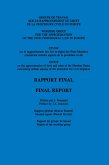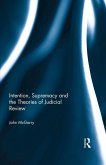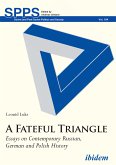Constitutional courts have emerged as central institutions in many advanced democracies. This book investigates the sources and the limits of judicial authority, focusing on the central role of public support for judicial independence. The empirical sections of the book illustrate the theoretical argument in an in-depth study of the German Federal Constitutional Court, including statistical analysis of judicial decisions, case studies, and interviews with judges and legislators. The book's major finding is that the interests of governing majorities, prevailing public opinion, and the transparency of the political environment exert a powerful influence on judicial decisions. Judges are influenced not only by jurisprudential considerations and their policy preferences, but also by strategic concerns. By highlighting this dimension of constitutional review, the book challenges the contention that high court justices are largely unconstrained actors as well as the notion that constitutional courts lack democratic legitimacy.
Dieser Download kann aus rechtlichen Gründen nur mit Rechnungsadresse in A, B, BG, CY, CZ, D, DK, EW, E, FIN, F, GR, HR, H, IRL, I, LT, L, LR, M, NL, PL, P, R, S, SLO, SK ausgeliefert werden.









